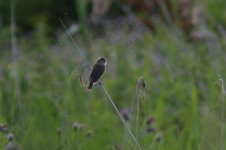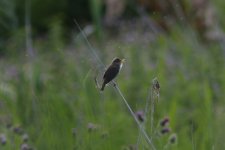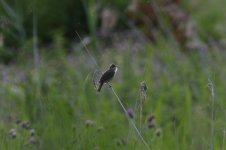Indobirder
Well-known member
I recently visited the Netherlands and got some birding in. Could you help me with the following 2 birds?
Pics 1, 2, 3 - seen at Oostvaadersplassen (July 4th). I'm hoping for Savi's Warbler
Pics 4, 5 - seen at Holwerd (July 18th). Tern in front. Little Tern? One in the back is probably Common?
Thanks
Pics 1, 2, 3 - seen at Oostvaadersplassen (July 4th). I'm hoping for Savi's Warbler
Pics 4, 5 - seen at Holwerd (July 18th). Tern in front. Little Tern? One in the back is probably Common?
Thanks









